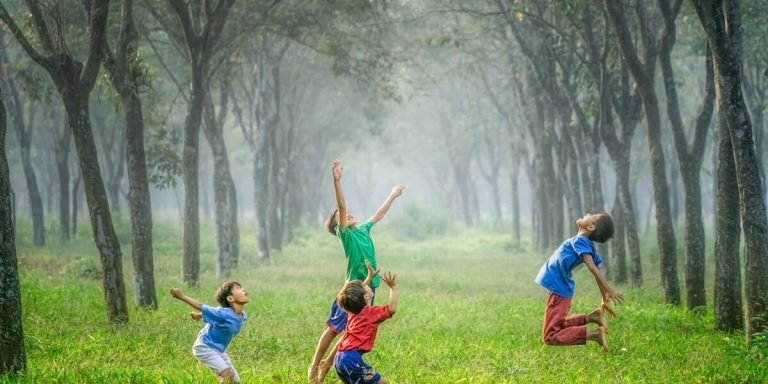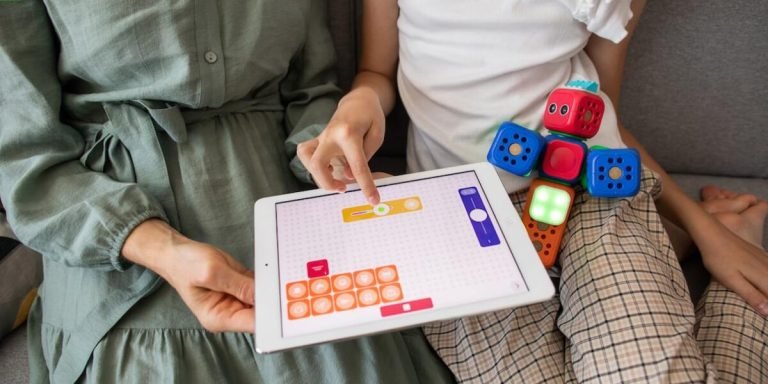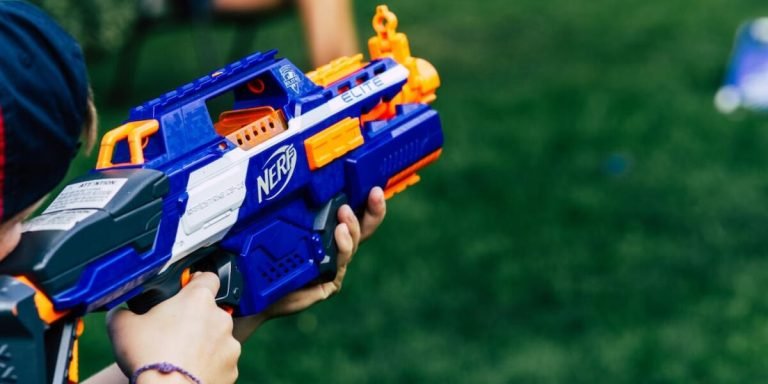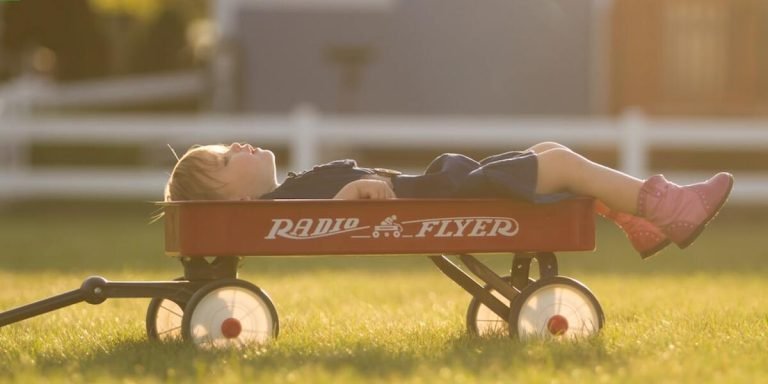Group Activities for Kids: Engaging, Educational and Fun Ideas for All Ages
Experiential learning is not just a trending buzzword in the educational sector; it’s an approach that strengthens understanding and fosters skills through first-hand experiences. One of the most effective ways to implement this model? ‘Group activities for kids’.
Carefully designed group tasks help children grasp new concepts, while also nurturing their social interaction capacity, teamwork spirit, problem-solving abilities and much more.
Let’s delve deeper into how activity-based learning can be both engaging and instructional. Different age groups require different approaches when it comes to ideating these group exercises – but worry not! Our guide provides various fun idea suggestions suitable for all ages which will make learning an exciting experience rather than a burdensome task.
Let’s explore together some out-of-the-box methods to foster your child’s education within dynamic team settings.
Did you know?
Engaging children in group activities actually amplifies their brain development, specifically enhancing social interaction skills and emotional intelligence, according to studies from the National Institute for Play.
Understanding the Impact of Experiential Learning on Child Development
Experiential learning, or activity-based learning, is fast gaining recognition in the field of childhood education for its noteworthy impact on child development. The process involves children actively participating in group activities to facilitate their understanding and knowledge retention better than traditional rote memorization techniques.
Known for stimulating multiple cognitive aspects simultaneously, experiential learning presents kids with competitive scenarios that teach them critical problem-solving skills and nurture decision-making abilities. Such “group activities” ensure a holistic approach towards developmental cognition by fostering social interaction amongst peers which fosters emotional intelligence along the way.
Moreover, incorporating this hands-on teaching methodology can help children develop valuable life skills such as leadership traits, teamwork principles and resilience – honed through experience rather than passive curriculum instructions. Thus in 2023 we are seeing an educational revolution focusing heavily on these engaging methods to shape our future generations effectively.
The Role of Group Activities in Enhancing Social Skills
Group activities play a crucial role in child development, particularly enhancing social skills. They are not just about fun and games but serve as experiential learning opportunities where kids interact, innovate ideas, solve problems together and build lifelong bonds.
The modern curriculum emphasizes more on activity-based learning over the traditional teaching methods due to its profound impact on children’s cognitive growth. In this digital age of 2023 when online education is becoming pervasive, it becomes even more essential for parents and educators to ensure that group activities remain an integral part of their teaching strategy.
When “group activities for kids” involve teamwork or collaborative tasks they equip children with leadership traits like decision-making capability which can prove invaluable in future professional situations as well.
Moreover, such actions enhance self-esteem among young ones by allowing success through collective efforts rather detrimental competitive mindsets. The joy derived from accomplishment teaches practical lessons profoundly impacting emotional resilience formation providing much-required aptitude adjustments needed living up real-world challenges outside school realms.
For instance; the art project designed collaboratively embraces mistakes productively improving perseverance levels seeing failures merely stepping stones towards eventual triumphs instead devastating roadblocks stops progress dead tracks instilling vital life lesson virtues patience determination required navigate intricacies adulthood smoothly efficiently sans unnecessary stress pressure negatively affects wellbeing.
Cognitive Growth Through Hands-On Learning Experiences
Group-based experiential learning directly impacts four major areas of child development – cognition, creativity, teamwork and empathy.
Firstly at its core lies cognition upgrades that are visible as children grapple with solutions trying out different things. When engaged in situational problem-solving scenarios like building blocks or role-playing games- their analytical skills get a boost.
Second on our list is creativity enhancement – when posed with opportunities where they need to think outside the box during these team pursuits, their innovative thinking capacity blossoms naturally. For instance working together creating crafts encourages imagination while applying practical skills.
Thirdly comes improved teamwork abilities demonstrated by youngsters collaborating over shared goals within fun-filled interactive confines of play settings . It’s here they learn about sharing responsibility and consequential outcomes hence fostering leadership qualities early on .
Lastly but importantly nurtures compassion , understanding others perspective becomes intrinsic in cooperative atmosphere enhancing social-emotional intelligence quotient significantly which has long term benefits beyond classroom boundaries too .
In conclusion it’s safe to say that incorporating hands-on group activities not only makes lessons more enjoyable but effectively optimizes brain functioning aiding overall personality growth among young learners.
Designing Effective Group Activities for Children’s Learning Journeys
In the landscape of childhood education, designing effective group activities for children’s learning journeys remains a crucial element. With advancements in technology and educational concepts, traditional rote memorization methods have become outdated. In 2023, an increased emphasis on ‘Experiential Learning’ or ‘Activity-Based Learning’ has come to dominate early years instruction.
Fostering interactive environments through group activities promotes active participation amongst kids while nurturing their interpersonal skills. The dynamics of working together serve not just as a medium for engagement but also provide scope for open-ended conversations and negotiation processes which are key components in cognitive development.
Group activities play an intrinsic role in creating experiential encounters by introducing real-world scenarios into classroom settings. These could range from simple building blocks challenges to more complex problem-solving tasks that require collaboration between team members – each designed with the intent of stimulating intellectual curiosity among young learners and helping them apply learned knowledge effectively.
Key Elements for Successful Activity-Based Learning Sessions
When designing successful group activities for kids, there are several key elements to keep in mind. It’s not just about keeping the children entertained; it’s about sparking their curiosity and fuelling their desire to learn.
The first step towards planning an effective activity-based learning session is including interactive experiences. Activities that encourage active participation help children grasp concepts better. Hands-on tasks such as building models or engaging in role-plays can make complex subjects easier to understand, especially when they’re integrated into a structured lesson plan.
For a beneficial experiential learning approach, maintain equilibrium between instruction and exploration time during your sessions. Lead discussions that pique children’s interest but give them enough space for self-exploration as well – this will foster critical thinking skills while ensuring they don’t lose focus on the overarching educational goals.
Promote teamwork by incorporating collaborative projects into your lessons plans since group activities stimulate conversation among students thereby amplifying comprehension of new ideas.
Children best remember what they have learned through direct experience rather than abstract explanation.Leverage real-life scenarios in teaching – use botanical gardens for biology classes or local grocery stores for maths exercises! This makes classroom teachings relevant beyond textbooks & lectures thus stimulating lasting retention .
Incorporating Diversity and Inclusion in Kids’ Group Tasks
Incorporating diversity and inclusion in group activities for kids is a vital step towards creating an enriching learning environment. It not only fosters social harmony but also equips children with the skills to work constructively within diverse teams.
Begin with acknowledging differences as strengths. Children come from all kinds of backgrounds, have varied interests, and possess unique abilities that should be celebrated rather than muted or ignored. A diversified team can yield more dynamic results when it comes to problem-solving tasks or creative undertakings simply because different minds bring differing ideas to the table.
Next, focus on designing inclusive activities – those which make room for every child’s input. Avoid competitions where one outshines another; instead opt for collective projects that emphasize cooperation over rivalry—this way everyone contributes according to their strengths while working towards a shared goal.
Then explore giving roles based on individual talents yet encouraging skill-developing opportunities outside their comfort zones too. For instance, if there’s always one child who leads discussions due to strong communication skills – alternate this role amongst others some time so they experience new responsibilities without feeling overshadowed by someone else’s aptitude.
Remember too not just ethnicities and capabilities but gender inclusivity as well—a balanced representation ensures no biased outcomes from your efforts at instilling respectfulness among young learners regarding such factors.
Measuring Outcomes from Experiential Group Activities for Kids
In the realm of childhood education, experiential group activities play a crucial role. They offer an engaging and fun-filled approach that allows kids to learn through their own experiences. Instead of just focusing on traditional theoretical knowledge where children are passive recipients, these dynamic activities provide active learning opportunities for young minds in 2023.
Measuring outcomes from these interactive tasks can shed significant light on enhancing the effectiveness of educational strategies intended for children. It gives educators insight into which methods work best when it comes to educating youngsters based on first-hand experience – thereby facilitating Activity Based Learning (ABL). Moreover, evaluating results not only assesses individual performance but also examines how effectively they have been working as a team.
Group activities allow children to interact with each other freely while solving problems or accomplishing shared goals collectively – blissfully unaware that they’re embarking upon an enriching journey towards effective communication and teamwork skills development. Through this constructive process, educators can gauge skill enhancement like problem-solving abilities, creativity level & cooperation among peers – vital indicators showcasing desirable growth patterns in terms of cognitive development.
Assessing Behavioral Changes Post-Group Interactions
When it comes to group activities for kids, the key is not just in participating but also in assessing behavioral changes post-interactions. In 2023, with a renewed emphasis on experiential learning or activity-based learning, educators and parents need effective tools to measure outcomes from these exercises.
Children who engage in groups often develop essential social skills like teamwork, leadership ability and communication – all vital ingredients for adulthood success. However, quantifying this growth can sometimes be challenging due to its subtle nature.
The first step towards measuring progress starts right after the completion of an exercise. Encourage children to share their experiences openly within the setting of their respective peer groups– discussing what they learned from each other’s perspectives can foster inward reflection while simultaneously developing verbal abilities.
Observation should be your primary tool during such sessions. Noting any visible shift – both minor or significant- could indicate positive behavioural change stirring beneath surface-level interactions; signs may include increased confidence when speaking up or better interpersonal dealings among previously reserved participants.
A systematic recording over time will help you track individual improvements with greater precision; create a simple checklist capturing various aspects related to emotional intelligence (patience showcasing under pressure situations) empathy (how well are others’ feelings recognized?), problem-solving etc., depending upon which skill your session intended at honing initially.
Evaluating Academic Improvements Linked to Collaborative Projects
In the current educational landscape, we are realizing more than ever that a child’s academic journey doesn’t revolve solely around textbooks and classroom lectures. Enter experiential learning or activity-based learning, where ‘group activities for kids’ play a pivotal role in fostering essential skills such as cognitive development, team-building capabilities, and problem-solving abilities.
Measuring outcomes from these collaborative projects isn’t just beneficial; it’s crucial to gauge whether this novel teaching methodology is truly making an impact on your young one’s academic progress. So how can you evaluate academic improvements linked to group activities?
Firstly, compare pre-activity results with post-activity outcomes. Before starting any new project based on group activities for kids’, record their present performance levels across various parameters like examinations scores or assignment grades. Once the activity concludes analyze if there has been demonstrable improvement in these scores – indicating successful experiential education through group tasks.
Next monitor changes in behavior patterns after consistent exposure to cooperative ventures.
Conclusion
In the vibrant world of childhood education, group activities for kids play a pivotal role in shaping skills such as collaboration, creativity and communication. These engaging experiences not only make learning an adventure but also ensure that our children grow up to be well-rounded individuals ready to navigate life’s challenges.
Whether your kid is crafting art from waste materials or solving problems with peers during an educational board game session, rest assured — each moment spent in these wholesome activities build foundations of lifelong knowledge. We hope you have found some inspiration here today! For more ideas on educating children and invaluable support articles tailor-made for parents and educators alike, keep scrolling through our resource-rich website.
Immerse yourself in the world of child growth – one page at a time.







